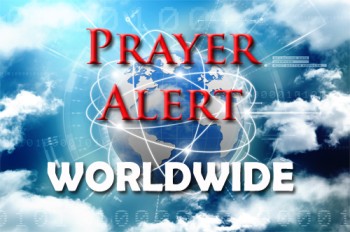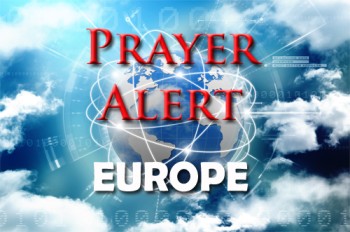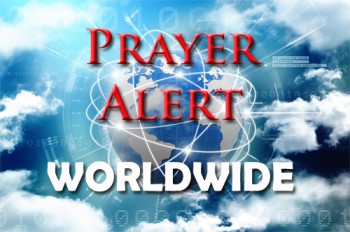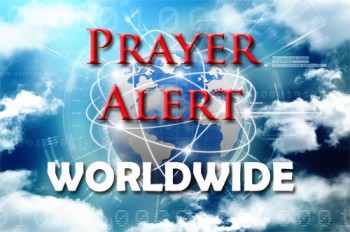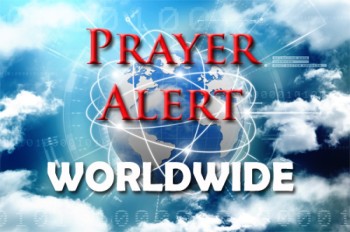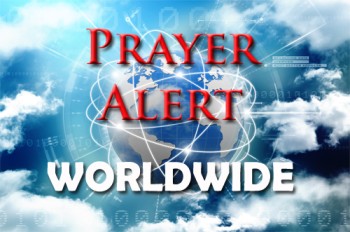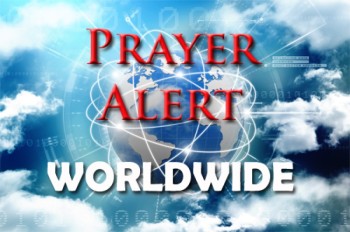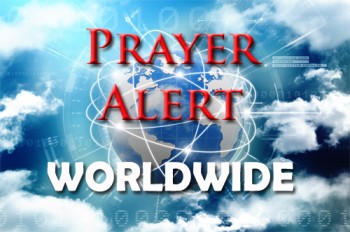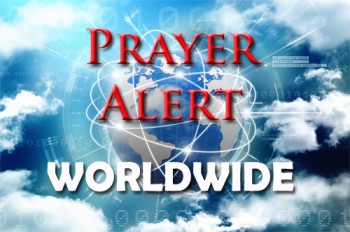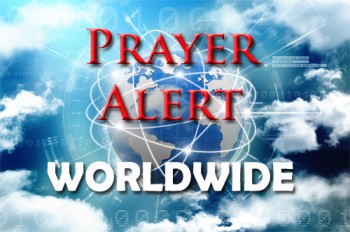Displaying items by tag: Libya
Libya: UN report shows severe abuse of migrants
A United Nations report reveals severe abuse faced by migrants and refugees in Libya. Many fleeing war or poverty hope to cross the Mediterranean, but instead encounter exploitation. Testimonies describe detention in crowded centres, forced labour, trafficking, and repeated violence. Some are intercepted at sea and returned to conditions where dignity and safety are absent. Investigators say criminal networks often operate alongside officials, creating a system where suffering becomes routine. Thousands remain held without due process, and families are left uncertain about missing relatives. The crisis shows how vulnerable people can be when trapped between conflict, poverty, and political instability.
Italy: PM being investigated by ICC for releasing Libyan suspect
Giorgia Meloni has revealed she is under judicial investigation after her government released Libyan police officer Osama Elmasry Njeem, wanted by the International Criminal Court (ICC) for alleged crimes against humanity, including murder, torture, and rape. Njeem, detained earlier this month in Turin, was unexpectedly repatriated to Libya on an Italian aircraft two days after his arrest. The ICC has demanded an explanation, stating it was not consulted. Meloni, who now faces allegations of aiding a crime and misuse of public funds, has denied wrongdoing. Njeem is linked to Libya’s Special Defence Force (SDF), operating notorious detention centres implicated in atrocities during Libya’s post-Gaddafi civil war. His release has strained Rome’s relations with the ICC, which has recently expanded investigations into crimes in Libya. Opposition leaders are demanding further explanations in parliament.
Libya: at least 11,000 die after massive floods
Tens of thousands of people are dead in Libya after a storm caused two dams to burst and four bridges to collapse, releasing a tsunami of water as people slept. Much of Derna City is under water and up to 20,000 people may have died, based on the number of districts completely destroyed. About 10,000 are missing from streets swept away in the torrents. Bodies are being recovered from the sea, in the valleys, and from under buildings. Rescue teams have arrived from Egypt, Tunisia, Italy, Spain, Turkey, and the UK. Pray for good communication between volunteers, all speaking different languages, and that the two rival Libyan governments will successfully coordinate relief efforts. The devastation is becoming more tragic every minute. Doctors Without Borders (MSF) does not currently work in the flooded areas, but a team of emergency medical workers has arrived in Derna, to assess needs and donate emergency medical kits and body bags to Libya’s Red Crescent. See
Libya: progress towards democratic elections?
Key issues remain strongly contested despite draft laws agreed in Morocco by Libya’s rival legislative bodies. Libya has been fraught with conflict for more than a decade since Muammar Gaddafi’s removal during the Arab Spring, prompting rival factions to compete for power. By 2015 two legislative bodies had formed and struggles over Libya’s rule and wealth have continued since then. A 6+6 committee drawn from Libya’s two rival legislative bodies – the Tobruk-based House of Representatives (HoR) and the Tripoli-based High Council of State (HCS) – agreed on 6 June on draft laws for presidential and parliamentary elections, inching forward in the country’s current political crisis. The UN, while welcoming progress, says key issues remain strongly contested, blocking the road to a final settlement and harbouring the potential to spark a new crisis in the divided country. The democratic process needs to reach an agreement on the eligibility criteria for presidential candidates.
Libya: Christians arrested for apostasy
Libya’s religion is Islam with Sharia law, but the constitution guarantees non-Muslims freedom to practise their religion. Yet, six Libyan Christians, arrested separately, are facing a potential death sentence as apostates for converting from Islam. They are also accused of proselytising others and are charged under Article 207 of the penal code, stipulating the death penalty for promoting views that ‘alter fundamental constitutional principles or structures of the social order’ or overthrow the state. Possessing books, leaflets, drawings, slogans, or anything supporting such a cause is punishable by life imprisonment. Libya’s Internal Security Agency said it issued the arrests to ‘stop an organised gang action aiming to solicit and make people leave Islam’. One of the six Christians is a 22-year-old woman who released a video explaining her conversion to Christianity at the age of 15.
Libya: warlord involved in Sudan war
Libyan warlord Haftar controls eastern parts of Libya and, fuelled by outside interests, could worsen Sudan’s conflict. Analysts describe a ‘nightmare scenario’ of multiple regional powers fighting a proxy war in Sudan, endangering over 45 million people. Recently, Haftar passed on crucial intelligence to Sudanese general Hemedti, detained his enemies, increased deliveries of fuel, and trained hundreds of RSF fighters in the urban warfare tactics needed in Khartoum and other cities. Hemedti and Haftar have also collaborated on smuggling operations of valuable illicit cargo between the two countries. Currently, neither Haftar nor his sponsors, UAE and Russia, will commit entirely to one side in a conflict whose outcome remains unclear. Also, he does not want to alienate Egyptian supporters who back Sudan’s General Burhan. One NLA militia commander said his force was ‘ready to support Hemedti but is still monitoring the unfolding situation in Sudan’.
Libya: A nation in turmoil
Libya’s government has been unstable for a decade. The situation for Christians changed drastically after Gaddafi’s regime fell. Weapons and Islamist ideologies such as Ansar al-Sharia, Nusra Front, and ISIS began hunting down Christians. The world will never forget ISIS beheading Coptic Christians on Libya’s beach. We praise God that a Christian ministry was able to visit Libya for a week recently and was warmly welcomed as they encouraged many people and shone the bright light of Jesus Christ in this difficult-to-reach nation. Thank God for the global Christian communities and individuals who are praying for the Libyans with love and sympathy. May more avenues be opened for Christians to enter and encourage the persecuted Libyan church. Pray for Christians to gain greater religious freedom to spread the gospel and be able to follow Jesus openly and pray for the believers who are arrested and mistreated because of their faith.
Libya: Christian’s unfair death sentence
A young man who accepted Jesus in 2018 was arrested by militias and detained several times during recent years. They tried to force him to recant his faith. There is no rule of law; there are no official law-enforcement agencies. Libya has no law against apostasy, so converts are tried for treason. However, a court based its decision on a law enacted by the elected legislative body between 2012 and 2014 ,which states that an apostate from Islam must be executed if they do not recant. That law and others were cancelled by the current Tobruk-based parliament, elected in 2014. However, as part of a continuing power struggle, the Tripoli supreme court declared the Tobruk-based parliament illegal, allowing courts freedom to still apply the cancelled laws. The accused did not have legal representation during the proceedings.
Libya: dangers of being a Christian
Libya is overwhelming Muslim: only 0.5% of the population is Christian. It is effectively a lawless land where to be a Christian is to live a secret life of faith. Those who leave Islam to follow Jesus face immense pressure to renounce their faith. Their community ostracises them, and they can be left homeless, jobless and alone. Telling others about Jesus can lead to arrest and even violent punishment. Believers are further exposed to danger since Libya has no central government, so laws are not enforced uniformly. Targeted kidnappings and executions are always a possibility for believers. Women generally live secluded lives under strict family control, making it extremely difficult for women who convert from Islam to Christianity. If discovered, they can face house arrest, sexual assault, forced marriage and even so-called ‘honour-killing’. A Libyan man becoming a Christian can lose his job (men are the family providers), be mentally abused and excommunicated from the family.
SAT7 briefing
January 2022 looks very different in contrasting corners of the Middle East and North Africa - from wealthy Gulf nations to countries in crisis like Afghanistan and Yemen. SAT7 analysts see hopeful signs of nations beating swords into ploughshares, but too few leaders are using their power, or lessening their grip on it, for the good of all. An important positive trend we will see continuing from 2021 is renewed diplomacy by key players and rivals in the region. The UAE reached out to Turkey with a $10 billion investment olive branch. Both countries are looking to de-escalate the tensions which have resulted, for example, from their military support for opposite sides in the Libyan conflict and their opposite policies towards the Muslim Brotherhood. Turkey has also sought to ease tensions with Egypt and began 2022 with a new rapprochement with Armenia. For the full briefing click the ‘More’ button.
